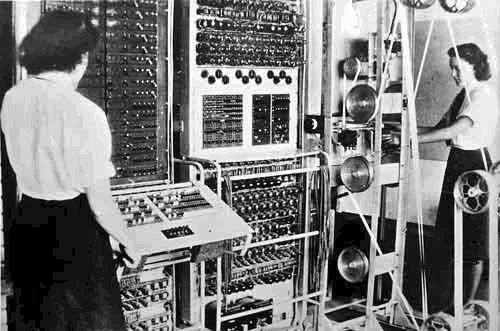 Geniuses recruited from
academia, industry, and
even the Royal Postal
Service designed
and optimized machines to speed the decoding process. Among these
machines, and still little recognized in the history of computers, were
room-sized devices which were, in fact, the earliest programmable
computers.
Geniuses recruited from
academia, industry, and
even the Royal Postal
Service designed
and optimized machines to speed the decoding process. Among these
machines, and still little recognized in the history of computers, were
room-sized devices which were, in fact, the earliest programmable
computers.
Information extracted from German messages enabled allied convoys to evade German submarines and enabled British generals to anticipate the movement of German armies. Bletchley Park is credited with Britain's survival through the early years of the War, and ultimately with shortening the war by months or years. See "Station X" by Michael Smith for one of the best accounts of Bletchley Park.